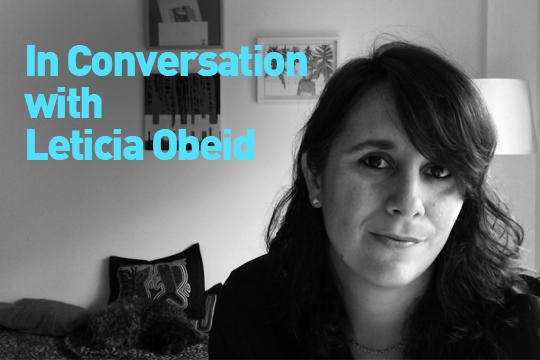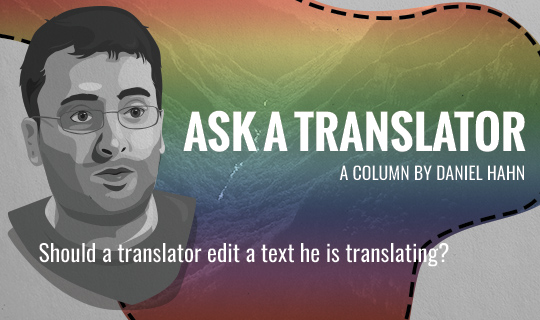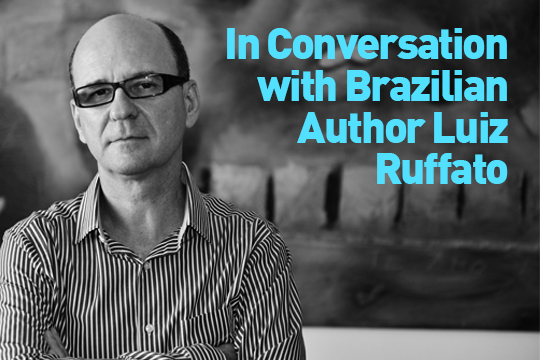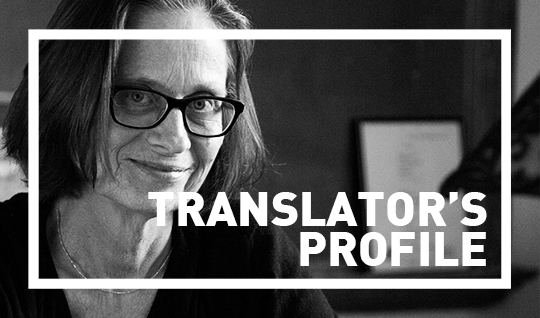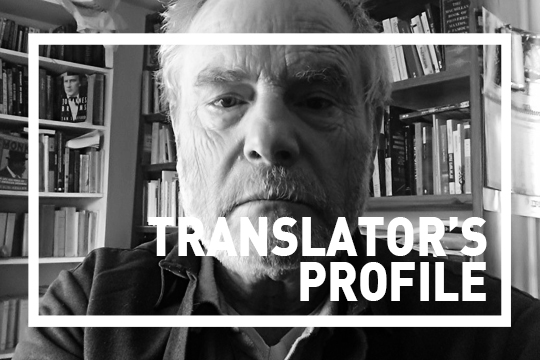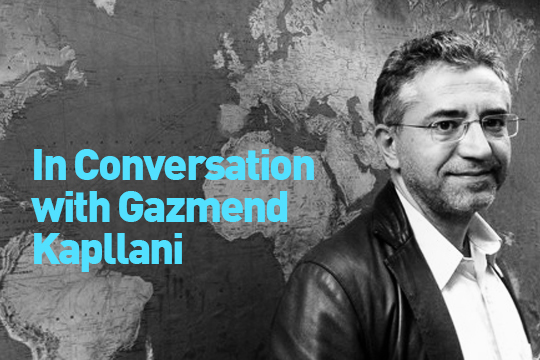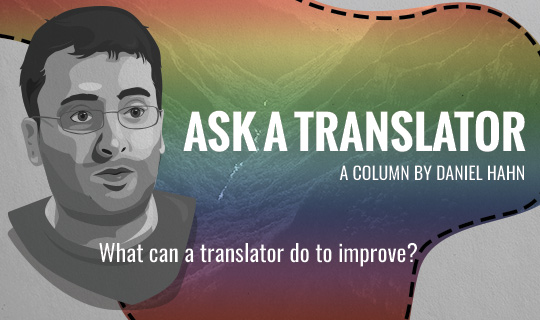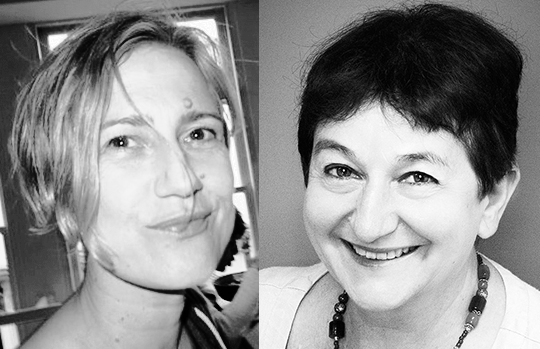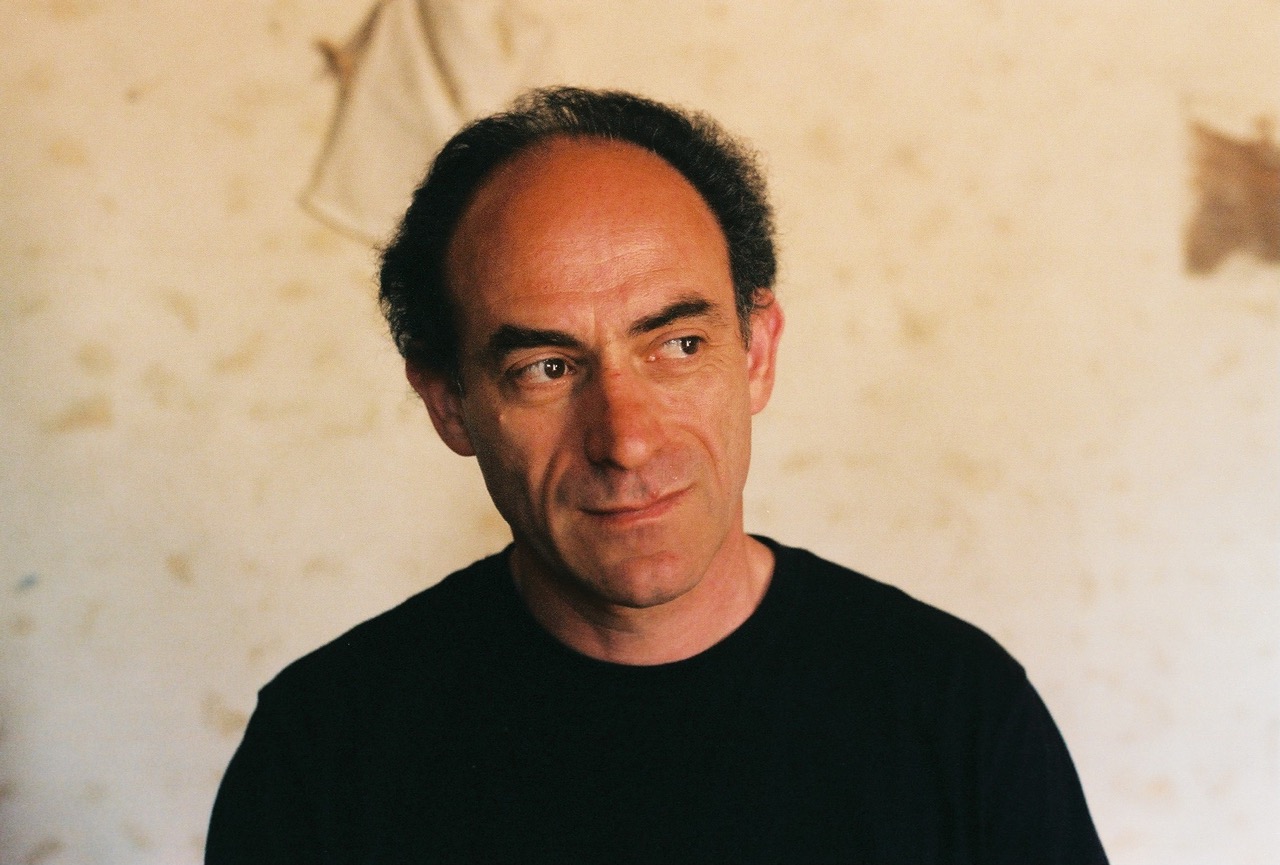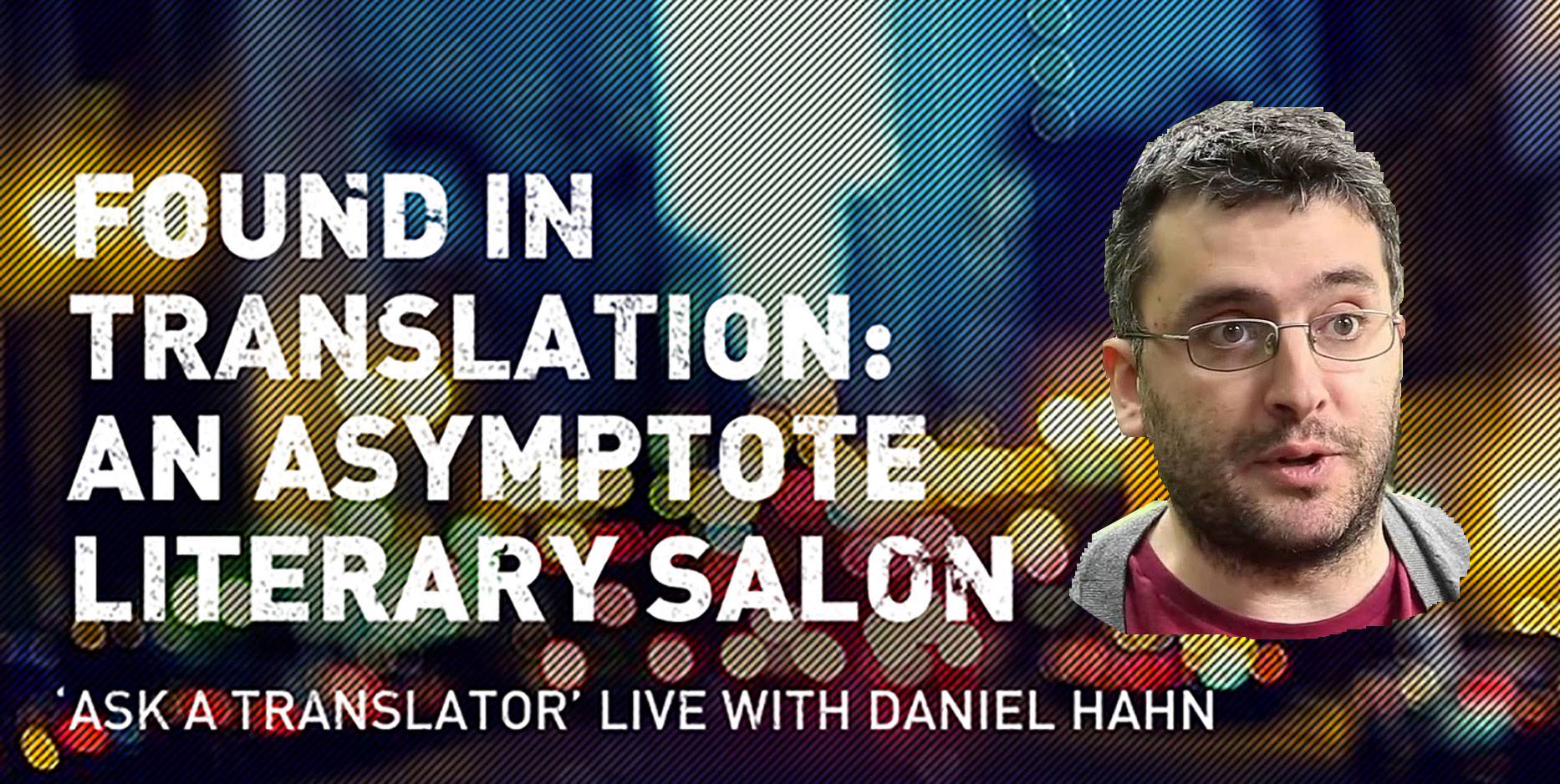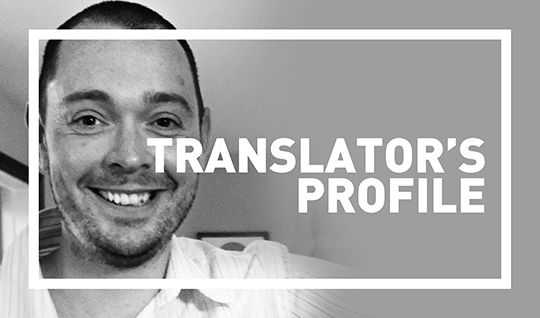Today, we’re trying out a new form with this sharp and engaging interview brought to us by Alexis Almeida, an Assistant Editor of Asymptote. Victoria Cóccaro interviewed artist and writer Leticia Obeid in Spanish; Almeida translated it into English. Much of Obeid’s work deals with ‘the copy,’ reproduction and interpretation—questions translators face as interpreters and writers. Here is the English translation, with the original Spanish below it.
Leticia Obeid is a visual artist and writer. As a writer, she has published the novela Se conoce que si (2012) and the artist book Escribir, Leer, Escuchar with Blatt & Rios press, as well as the novels Frente (2013) and Preparación (2015) with Caballo Negro press. In her visual art, which you can see here, she stages a dialogue between these artistic practices, while at the same time interrogating their supposedly separate bearing. Through the different forms she explores—video, drawing and illustration—she poses questions about what reading is, what writing is, and above all how the word can become an image, line, or sound. The line turns into a form of temporality and experience in her work, whose residue is the materiality of its footprint. Like a 19th century naturalist who copies in her notebook with her pen an infinitude of species that reveal themselves phenomenologically, she uses handwriting as a tool to materially experience thought and existence. Reading, writing, translation, image, word, and copy could be terms that vector—without diagramming entirely—Leticia Obeid’s work, which is also a kind of thinking about visual art, a kind of putting pressure on its assumptions and limits, allowing it to travel through (travel, travel-writing, other vectors) other artistic practices.
The following interview emerged from Leticia’s participation in Mi Bibliografía / My Biography, a series that I coordinate together with Marcos Perearnau at La Sede, a cultural space in Buenos Aires. With this as a pretext, I lingered to think about her work and found the idea of the copy operating as much in certain themes as in techniques she developed, I think, to explore this idea. My hope is that the reader will think about the way the idea of the copy operates in her artistic project, how it sets down in certain procedures, and also throughout the scope of Argentine and Latin American art in general. For this we’ll focus on five points: the link between the copy and tradition, Leticia’s work, experience, language, and our present moment. –Victoria Cóccaro
Victoria Cóccaro: We might consider that since its beginnings Argentine literature has activated a certain artistic potential in the copy. Practices like stealing, appropriation, reading, and rewriting intersect here in different ways. To name a few examples: Ricardo Piglia pointed out, from the apocryphal quotation that appears in the author’s note of Domingo Sarmiento’s Facundo–—on ne tue point les idées—the staged desecration of European or American culture, positing an “aesthetics of stealing.”[i] Borges points out a lateral and decentralized, even impertinent and irreverent use of European culture in Argentine literature; his writing contains much cutting, copying, and transcribing. Leónidas Lamborghini, in his Reescrituras, brings together copy and variation through a procedure that distorts and denaturalizes the original statement of the work.[ii] Finally, I’m remembering all of the events last year surrounding Pablo Katchadijian’s El Aleph engordado—the lawsuit that Borges’ widow filed for supposed “plagiarism,” and the defense made by the artistic community on behalf of the work, alleging that his practice was in line with certain practices of 20th century art, from Duchamp forward, including Borges himself.[iii]
How do you locate your own practice within this trajectory?
Leticia Obeid: I am part of that tradition by affinity, but also in an inevitable way, because I believe that the feeling of being a copy of a distant original model is a specific kind of symptom of being from a culture born as a colony—this feeling that we are a copy of a distant, original model. Without a doubt, this quality exists in all of Argentine cultural production—it is more or less central, more or less evident in each case. In my work, the copy has a pop quality, I would dare to say, now that we’re looking for genealogies: the parody and the homage unite in a single act. I feel a love and a hate for those very expressions that I have learned by heart, those songs, those texts and images that at some point invaded a space in my mind. In some cases the copy is a response to that invasion; it’s a charade, and it’s reverential as well.

